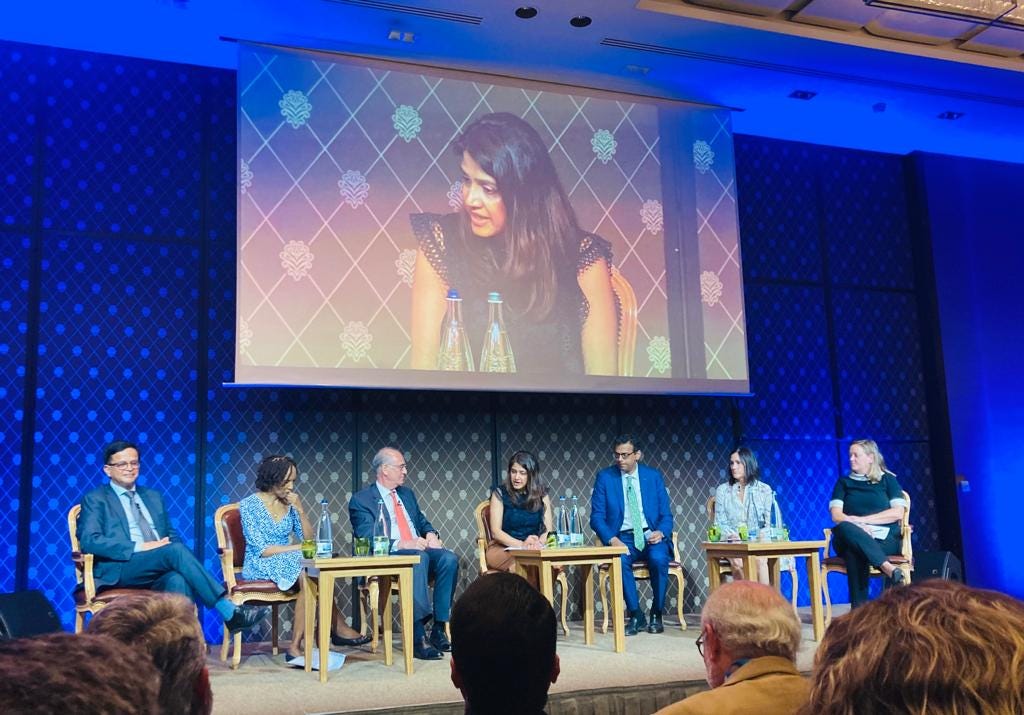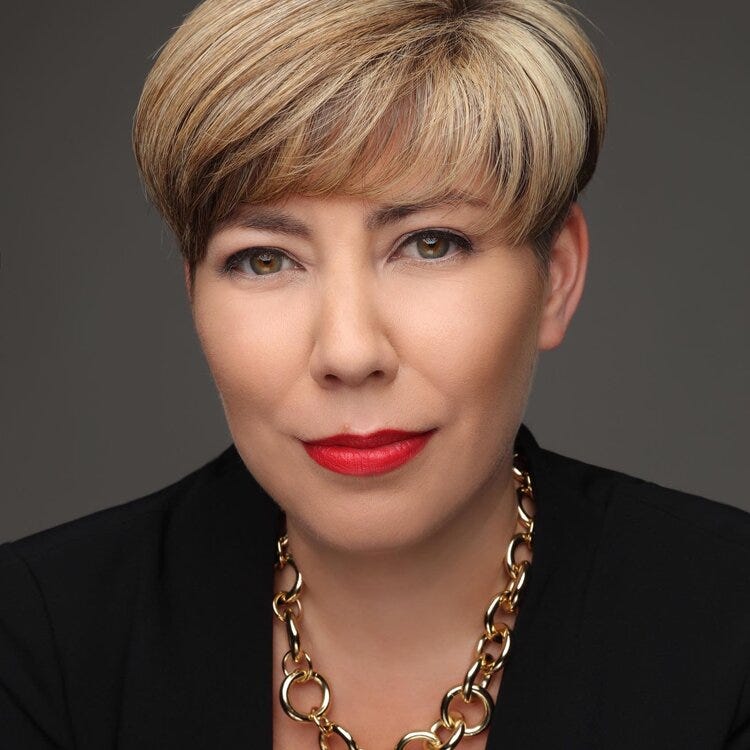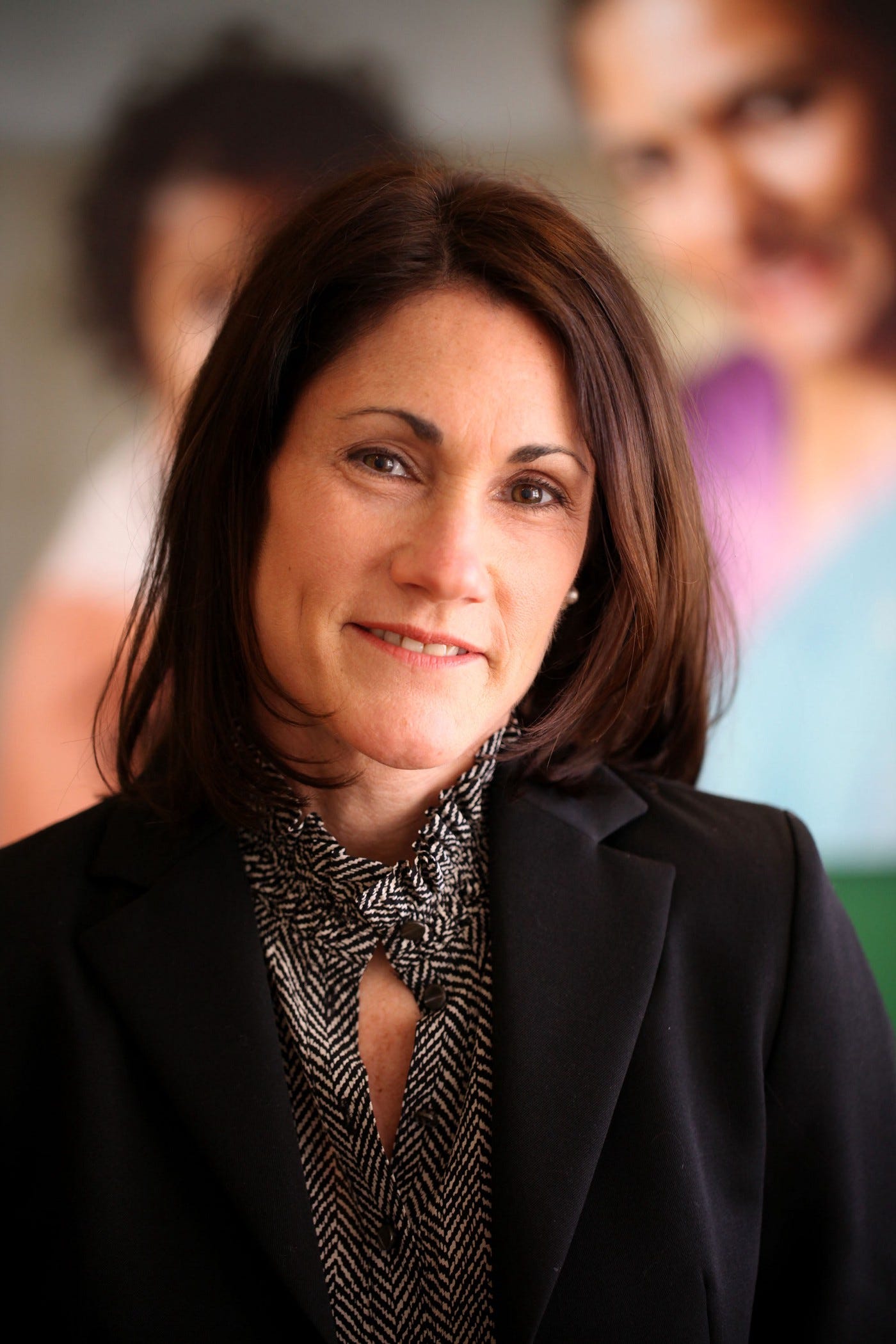Happy Sunday,
Switzerland’s economy is busy making up for lost time it seems. The conference season is raging, hotel costs are through the roof, the weather is gorgeous, and the world’s back in the mountains. Twitter is predictably angry about it all!
Davos?
Were you at Davos? If you’ve been asked that question this week and weren’t there, don’t feel too bad. The world’s elite, their backbone staff and a myriad of hangers-on, influencer types and the general “I’m going to Davos” crowd wasn’t as much in a save the world mood, as they were in a debate and disagree one, about the state and future of the economy. As the world swirls in a whirlpool of crises, Davos this year was all about panicked questions on:
* ‘Is globalisation dead?’
* Do we embrace crypto or bring ‘em into the mainstream fold?
* And how to handle a problem like energy/Ukraine/Putin?
It seems, the overall mood at Davos was ‘terrible.’ The sunshine didn’t help, neither did spring showers. And it didn’t get better as many Davos’ers have returned to their home turf - annoyingly with a slight case of Covid-19. For others who seem to have escaped the bug (including some family and friends) - this weekend’s agenda involves a lot of testing, topped off with fervent prayers for a negative result.
WHA!
I’ll admit I had a bit of FOMO as I flew into Switzerland this week, landing on the opposite side of the country, in Geneva. I mean, come on - weren’t you curious about what the Davos and Klosters villages look like, sans snow?
In hindsight, while deep diving into the world’s health might’ve been less sexy for Instagram, it was probably the safest move I could make (medically speaking). Geneva was hosting the 75th World Health Assembly (WHA) and who better to hang out with, than the doctors, surgeons, epidemiologists and World Health Organisation (WHO) staff who’ve been keeping us safe the past two odd years!
What’s the WHA? Thank you for asking! Meeting annually, this is the decision-making body of the WHO (Yes, the acronym crowd is strong here too). Attended by delegations (a mix of politicians and medical professionals) from all WHO Member States, this bunch determine the policies and financials of the organisation, approve the budget for the year, and appoint the WHO Director-General.
The most critical action that emerged (aside from Dr. Tedros Ghebreyesus being re-elected for his 2nd five year term)? The WHA adopted a resolution condemning Russia’s military operation in Ukraine, thereby creating a health care emergency. Seemingly, to make the WHA resolution completely unattractive for any twitter/social media debates or coverage it was anointed with the longest title ever — “Health Emergency in Ukraine and Refugee Receiving and Hosting Countries, stemming from the Russian Federation’s Aggression.” 88 countries voted in favour of the resolution, 12 against, 53 abstained, and 30 were absent.
But even as pandemics and war were being considered and debated in Geneva like Davos, the medical community gathered was almost seething with frustration, at what they think has become the annual gathering of clichés and politics.
I got the opportunity to set a few fires at the WHA, hosting a conversation for the Global Surgery Foundation about the world’s unequal and fragmented healthcare system. And boy did that fire get some honest and diverse views - from the Harvard Medical School, USAID, UNITAR to a corporate like Johnson & Johnson and NGO Smile Train. They were in agreement that for a healthier world we need to stop thinking in silos and upscale surgical care across the globe.

It is remarkable to think that we still don’t realise that millions more die across the globe because of the lack of access to surgical treatment - versus all the infectious diseases put together. Treatable inflictions and diseases kill more women, children & destroy quality of life than any infectious disease.
Most importantly the Covid-19 pandemic has reiterated — if a region has a well-staffed and equipped surgical unit, infectious disease prevention/survival rates are that much higher. Add war to the mix and it’s self-explanatory. The pandemic should have reminded us that if we don’t look at healthcare as sum of a whole, and not parts, we will forever be fighting an uphill battle.
The lesson I walked away with, as I hope did many ministers of health/politicians in the room: get healthcare funding to be flexible and able to be shifted as priorities shift. And critically invest in all aspects including surgical equipment, training and staff - & not just in what is a crisis today.
Most heartfelt was the sheer frustration WHO’s Dr. Nono Simelela radiated — of having the same conversation of platitudes every year. She questioned the world’s lack of a holistic approach, be it a developing or developed country using the most in your face example — global maternal mortality: “Why do women have to be brought to the clinic in wheelbarrows when there are Bentleys driving around the city,” she asked.
My two cents?
As part of all our ESG strategies, we need to re-think healthcare as core to our leadership plan, even if it feels disconnected/distant from what the business/organisation’s main focus is.
We need real partnerships and bridge building across sectors for the best learnings and support.
And most important? Surgeons, Doctors, epidemiologists - this fabulously smart and dedicated bunch of humans need to widen their conversations beyond their peers, stop talking in pure scientific terms and start telling stories to move hearts & minds. If we don’t know the stories of people, we won’t know how they are connected to us, or why it matters!
Have you med?
The women who blew me away at the WHA!
Dr. Nono Simelela, World Health Organisation
Dr Princess Nothemba (Nono) Simelela, is Assistant Director-General for Family, Women, Children and Adolescents at WHO. Hailing from South Africa, she has more than 30 years of experience as an obstetrician, academic, advocate and government official. She was the first black Obstetrician at the Medical University of South Africa, and most recently served as Special Advisor to the Vice President of the Republic of South Africa where her work spanned supporting the implementation of the country’s National Strategic Plan for HIV, TB and Sexually Transmitted Infections to reviewing the country’s Expanded Public Works Program.
Dr. Nadine Hachach-Haram, Proximie
Dr. Nadine Hachach-Haram is a consultant plastic surgeon and Head of Clinical Innovation at U.K. based Guy’s and St. Thomas’ NHS Foundation Trust. A surgeon, lecturer and clinical entrepreneur, she is the co-founder of Proximie, an augmented reality platform that aims to provide safe, accessible and cost-effective surgery to every patient around the world. Nadine’s tech allows doctors to virtually transport themselves into any operating room, anywhere in the world, to visually and practically interact in an operation from start to finish. Nadine received the British Empire Medal in 2018 and is council member of the Royal College of Surgeons Future of Surgery Commission, the British Association of Plastic, Reconstructive and Aesthetic Surgeons (BAPRAS), Innovation UK and also council member of the Royal Society of Medicine plastic surgery section.
Dr. Shannon Shibata-Germanos
Dr. Shannon Shibata-Germanos is an investor, advisor and consultant who focuses on health-tech, biotech, med-tech, neuro/AI interface and personalized medicine. She is the founder of Lacuna Advisors, Vice Chairman of UNAIDS Health Innovation Exchange, an investor in Proximie as well as it’s Global Health lead, on the board of The Digital Inclusion Foundation, The Global Bio Fund, and the Investment Committee of KHP MedTech Innovations (a joint venture between King’s College London and Guy’s and St. Thomas’ NHS Foundation Trust). She also remains a visiting Dementia researcher at University College London. Before her deep dive into the world of health Shannon was an expert in political policy analysis, conflict management, and institutional development in the Middle East.
Stacy Meyer, Johnson & Johnson
Stacy Meyer is the Vice President, Global Operations & Partnerships of Johnson & Johnson’s Global Public Health division. She was previously General Manager of J&J’s Medical Devices in South Africa, General Manager for the ETHICON & DePuy Synthes business units in Poland & Baltics, General Manager for the Global Surgery business units for Czech Republic and Slovakia following her role as Marketing Director for Central and Eastern Europe (CEE).
Susannah (“Susie”) Schaefer, Smile Train
Susannah (“Susie”) Schaefer is Executive Vice Chair, President, & CEO of Smile Train, the world’s largest cleft-focused organisation that prides itself on its sustainable and local model of supporting surgery and other forms of comprehensive cleft care. Before taking on the role of CEO she was on the organisation’s board for over 10 years. Previously, Susie worked with Smile Train’s Founder, the late Charles B. Wang, first as the Special Assistant to the Chairman and CEO at Computer Associates (now CA Technologies), and following his retirement, as his Chief of Staff for his business and philanthropic interests including the New York Islanders Hockey Club and NeuLion Inc.
Caught my eye
Task forcing entrepreneurship
Nothing encourages entrepreneurship like a task force! Well, that’s the going logic in the current U.K. government anyway! Liz Truss, the British minister for women and equalities but mostly known as the U.K.’s foreign secretary, has launched a task force to increase the number of female entrepreneurs by 600,000 by 2030.
I’ll give Liz one thing; she’s picked well when it comes to the folks who will actually head up the efforts. These are women who have aced the entrepreneurship game. The task force will be chaired by Anne Boden, the founder and chief executive of Starling Bank, and other members include Poppy Gustafsson, co-founder and chief executive of the cybersecurity company Darktrace. They along with others in the task force will build on the work of the Rose Review, led by Alison Rose, CEO of NatWest, which found that breaking down barriers faced by women entrepreneurs could boost the U.K. economy by £250 billion. All the government needs to do is get out of their way! Story: BM Magazine
Metaverse assaults
Ugh! If you’re a woman you aren’t even safe in the virtual reality (VR) world. Well, we already knew that. Now we have hard proof that Meta and its “verse” has some serious problems. The avatar of a 21-year-old researcher was sexually assaulted in Meta's VR platform ‘Horizon Worlds’. The researcher works for corporate accountability group SumOfUs, which has said Meta needs better plans to mitigate harms in its metaverse. It’s tall ask for a company that’s still not fixed its social media tech, let alone something as new and developing as the metaverse. Story: BBC
Deloitte’s new Africa boss
Deloitte has appointed Ruwayda Redfearn as the firm’s CEO of its Africa unit. The timing of appointing a woman boss isn’t surprising as the accounting firm has been dealing with a series of scandals in South Africa since 2017. Ruwayda will be Deliotte’s first female black CEO, and the fourth black CEO at the firm. Story: Deloitte
Malaysia’s musical chairs
Rethinking her career as Malaysia’s government deals with crisis after crisis, the country’s Plantation Industries and Commodities Minister Zuraida Kamaruddin has quit the governing party and joined another - Parti Bangsa Malaysia (PBM). She says she will also discuss stepping down from her Ministerial role (one of the most important portfolios in the Malaysian cabinet).
Her move comes just 2 months before a political stability pact between Malaysian’s Prime Minister Ismail Sabri Yaakob's government and the opposition expires on July 31, potentially paving the way for a national election. Since 2018, Malaysia has had three prime ministers and seen the collapse of two governments, amid political turmoil. Story: CNA
Burkini war
Why men care what women wear will always confound me. But you’d think secularism and liberty would include the freedom to wear what you want. Not in France, and not under President Emmanuel Macron’s watch. His new law (passed last year) to counter “Islamist separatism” is one he plans to use to challenge decisions which the government suspects undermine France’s secular traditions (intended to separate religion from state, something the French take quite seriously). Turns out the main targets for this new law have repeatedly been France’s Muslim women.
Grenoble, an ecologist-run city in the French Alps (close to Italy) on the other hand thinks women have the right to choose what to wear, at least in the city’s municipal pools. It’s left-leaning Mayor allowed the body-covering "burkini" bathing suits for women, but the French Interior Minister Gerald Darmanin wasn’t having any of it. His Ministry filed an objection in a local French administrative court against the “burkini permit”. The court suspended Grenoble’s decision and sided with the French Interior Ministry.
But now the city has appealed against the ruling, and the case will to go France’s highest administrative court, the Conseil d’Etat. The Burkini wars are now even more significant because this case will determine just how legal Macron’s new law actually is. It might’ve been simpler for him to mandate the itsy bitsy, yellow polka dot bikini as bathing uniform? Story: The Guardian
Slow but steady change?
Yay! Finally! Be gone, says Wimbledon to the titles of "Miss" and "Mrs" on its honour’s boards for female winners. In a resounding middle finger to the patriarchy, new boards will be installed by the start of Wimbledon’22 next month. There is a compromise involved - Wimbledon will continue to refer to the "Gentlemen’s" and "Ladies’" draw, rather than men's and women's. And the club hasn’t exactly been chomping at the bit to drop the marriage titles either — it comes a whopping 3 years after they were dropped by umpires calling out scores during matches.
Sally Bolton, the All-England Lawn Tennis Club’s first female CEO has somehow managed to slowly drag the club from 1868 (when it was formed) into 2022. But it’s been small tweaks for now, to bridge the gender divide. Wimbledon had been the slowest of the four tennis grand slams to hand out equal prize money, and she had to move heaven and earth last year to give male and female players the same towels for the first time. Who knew we didn’t deserve the good towels!? Story: The Telegraph
A parting note
I didn’t want to dwell on yet another massacre of children in the United States this week, or the ensuing 2nd amendment/gun ownership debate that inevitably follows. Having lived across 4 continents and some pretty dodgy neighbourhoods, I’ve personally never been tempted to own a machine that can kill living things - it’s never been imperative for my sense of personal safety or civil liberties. Having lived through terror attacks and the constant threat of danger as a child, I also know all too well, how that scenario impacts a child’s psyche.
Instead, I wanted to make a simple suggestion to all you parents reading this, wherever you live: please hug your children today (on my behalf too) and reassure them — we as adults will try and make the world a safer place for them, to the best of our abilities.








